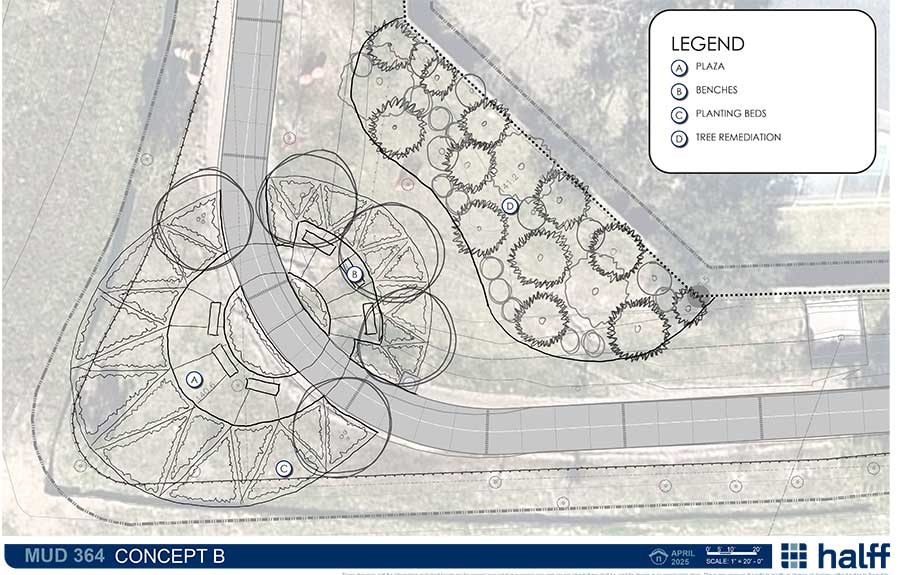Welcome to Harris County MUD No. 364
Welcome to Harris County Municipal Utility District No. 364 (District), located in the Coles Crossing subdivision in Cypress, TX.
The Board of Directors is proud to serve its residents. The District’s goal include:
- Provide the highest quality of water;
- Provide reliable water/sewer service and customer support;
- Maintain the integrity of the District’s lift stations;
- Control the tax base through prudent decisions; and
- Fiscal responsibility in order to ensure the financial stability and growth of the District.
What is a Municipal Utility District?
A Municipal Utility District (MUD) is a local governmental entity organized for the purpose of providing safe drinking water and sanitary sewer service to the areas within its boundaries. Additionally, a MUD can exercise other typical governmental powers, including, but not limited to, drainage relief within its boundaries, the levy and collection of ad valorem taxes, issuing bonds with voter authorization, charge for authorized services, adopt and enforce rules and regulations to accomplish the purposes for which the MUD was created, develop and maintain certain public improvements such as parks and jogging trails, provide solid waste management services, and provide police protection services. However, not all MUDs provide all of these services. While the powers of a MUD may seem very broad, MUDs are one of the most highly regulated and controlled governmental entities in the State of Texas. The powers of a MUD are limited to those expressly provided for in the Texas Water Code and the Texas Constitution and there is significant oversight provided by the Texas Commission on Environmental Quality (TCEQ).
Latest News
Sunset Plaza – New Trail Amenities Coming Soon!
We’re excited to announce the next phase of the Trail Improvements Project will begin soon!
Construction Start: week of November 17, 2025
Estimated Duration: approximately three weeks (weather permitting)
The new Sunset Plaza will be located along the trail, just south of the Coles Crossing Swim Center. This next phase will add comfortable benches, colorful landscaping and fresh trees – the perfect place to pause and enjoy the trails you love!
At this time, we expect the trails to remain open during construction. We urge the public to observe all warning signs and barricades until the project is complete for your safety and the safety of construction crews.
We’ll share regular updates here and through text alerts as work progresses.
Thanks for your patience and excitement as we continue to improve our community trails!

Phase II of the Sanitary Sewer Repair Project Begins Soon
The District will soon begin Phase II of the ongoing sanitary sewer system repair project. This phase will repair infrastructure in Coles Crossing Sections 14 – 17, 20 and 21.
At this time, no major impacts to residents are expected. Work will focus primarily on manholes and sanitary sewer trunk lines. We do, however, ask the community to remain aware of their surroundings and to follow any construction signs or safety notices in the area.
Work will begin the week of November 10 and is expected to take approximately 45 days.
The Board appreciates the community’s patience and understanding as we continue efforts to maintain and improve essential infrastructure.
Thank you for your cooperation and continued support.